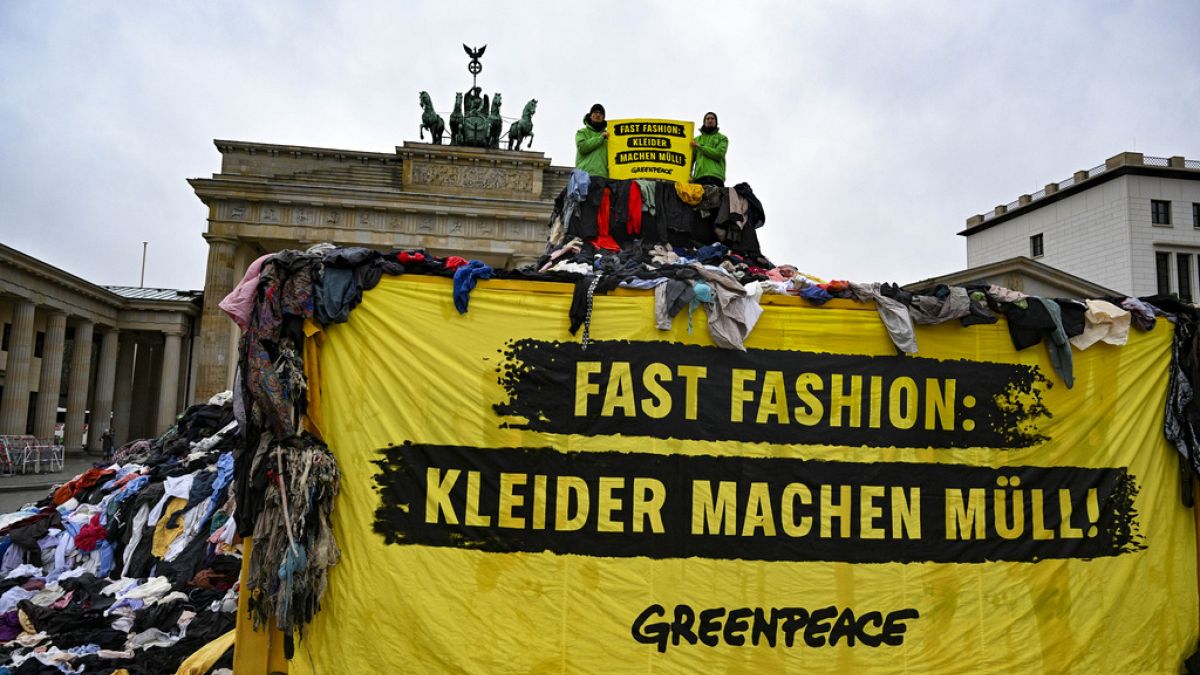European cities act on fast fashion at local level: Zero Waste Europe

While the future steps of the Waste Framework Directive (WFD) remain under discussion within the European Union (EU), cities across Europe are proactively addressing textile waste and promoting sufficiency, the report notes.
Even without strong government guidance, European cities are acting on fast fashion at the local level, proactively addressing textile waste and promoting sufficiency, a new report by Zero Waste Europe says.
Some such initiatives include restricting advertisements in public spaces; implementing repair incentives; promoting sharing and waste reduction; and hosting sustainable fashion events.
The report, titled ‘Cities and consumption: Local solutions to curb textile waste and combat fast fashion’, showcases practical examples where cities have demonstrated solutions to the textile waste crisis and provides guidance for concerned local policymakers.
Some such initiatives include restricting advertisements in public spaces to reduce consumerist pressures; implementing repair incentives to reimburse citizens for repair costs; supporting product-as-a-service models like clothing libraries to promote sharing and reduce waste; and hosting sustainable fashion events to unite ethical fashion actors, a release from the ZWE says.
The report examines the measures cities can implement to tackle fast fashion challenges. The report shows a number of pioneering measures that local authorities can take to encourage and nudge citizens towards more sustainable resource use.
ZWE is the European network of communities, local leaders, experts and change agents working towards a better use of resources and the elimination of waste in the society. Created in 2014 as the European regional branch of the Global Alliance for Incinerator Alternatives (GAIA), its network now has 35 members from 28 European countries.
One such initiative was undertaken by Finland’s Turku city, which invested in textile circularity infrastructure and joined over 30 mayors worldwide in signing the Slow Fashion Declaration.
The city advocates for systemic change, urging entities like the EU and G7 to implement regulations that support slow fashion entrepreneurs and challenge multinational fast fashion companies.
The city of Nantes in France provides public funding for a ‘Slow Fashion Training’ programme about the environmental and social costs of fast fashion. The training was developed in partnership with the Audencia’s Positive Impact Chair with specialists from the fashion industry.
Flanders in Belgium provides robust public support for reuse through social enterprise schemes. By offering wage support for collecting, sorting, and preparing textiles for reuse, the region addresses key barriers to textile circularity.
Flanders has set a reuse target of 8 kg per capita, achieved through designated reuse centres.
Fibre2Fashion News Desk (DS)
Related
Scotland’s biggest landowner is fashion brand billionaire
A European fashion tycoon is the biggest landowner in Scotland—and perhaps even the UK. Danish billionaire Anders Holch Polvsen named the Highlands' richest
EU targets food and fast fashion in new war on…
Polish presidency of the EU Council announced breakthrough in early hours after marathon overnight talks on food waste reduction targets and measures t
Fashion must-haves for your spring semester in Europe
Preparing to study abroad can be incredibly intimidating. With all the emotional turmoil you’ll face in the weeks prior, the last thing you�
Worldview: Ukraine’s Adaptive Fashion for the War Wounded
🇺🇦 Ukrainian Fashion Week presents adaptive clothing for combat injuries. More than 40 fashion brands presented their latest collections at Ukrainian Fash











